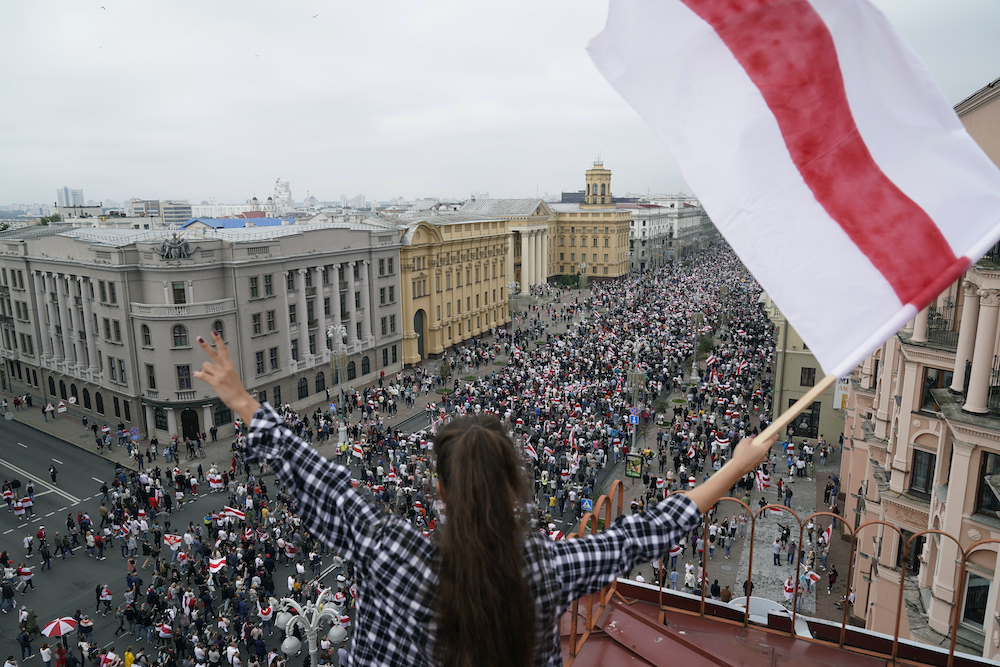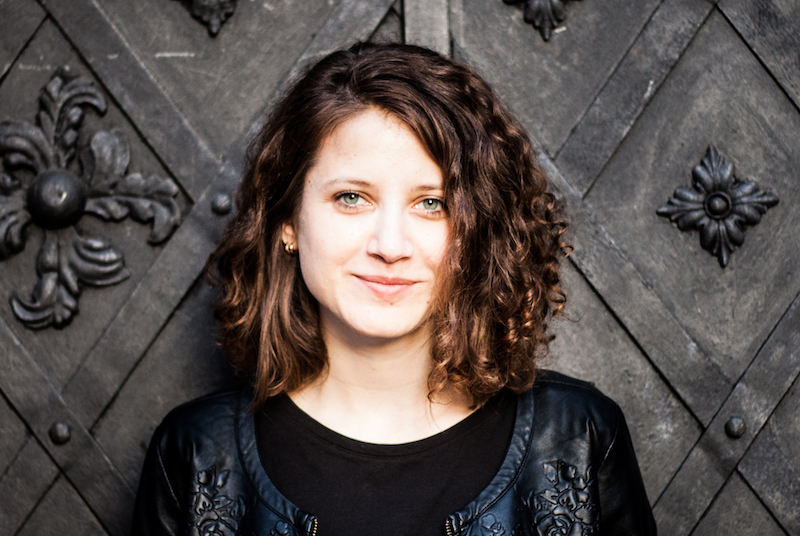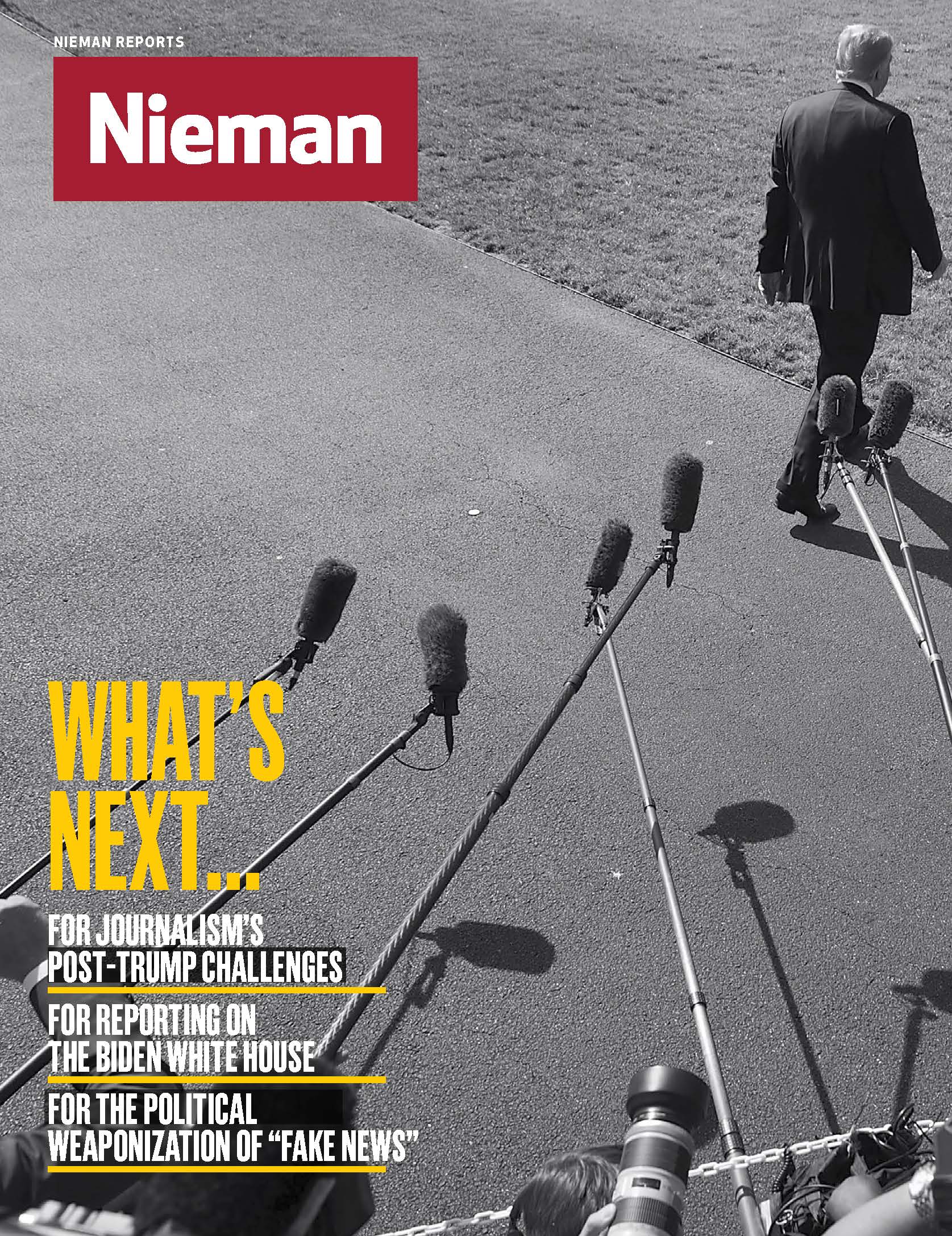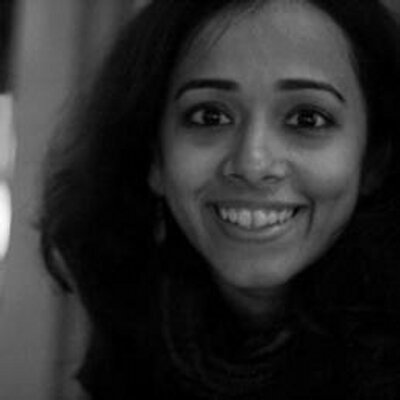
A woman waves an old Belarusian national flag as Belarusian opposition supporters, demanding the resignation of President Aleksandr Lukashenko, march to Independence Square in Minsk in August 2020
“Nearly everybody I know has been injured, beaten, detained, forced to flee, or has gone into hiding. It is personal. These are my friends. These are my fellow citizens,” says Belarusian journalist Hanna Liubakova. She has been a witness to this extraordinary period in the history of Belarus as massive protests rocked the country after the contested election in August of President Aleksandr Lukashenko, who has been in power for 26 years. Police brutality, detentions, deaths of protesters, and suppression of all forms of dissent have followed.

Belarusian journalist Hanna Liubakova
Belarus, a former Soviet republic, ranks 153rd (out of 180 countries) in Reporters Without Borders’ (RSF) 2020 World Press Freedom Index. RSF notes that 16 journalists are in prison and at least 60 journalists have been the victims of serious violence, mistreatment, and/or even torture by the police. There have been 335 arrests of journalists and more than 400 press freedom violations over the last three months.
After cancelling the accreditation of some foreign press personnel in August and deporting some journalists, government officials in October cancelled the accreditation of all foreign journalists and mandated that they re-apply under new rules.
To the outside world, Liubakova’s tweets and reports have become an important source of news from Belarus. A 2019 World Press Institute Fellow, Liubakova is a freelance journalist and media trainer with Transitions Online, a Prague-based media development organization. She has worked with Belsat TV, Radio Free Europe/Radio Liberty, and Outriders in Minsk.
Nieman Reports reached out to Liubakova to learn about her work and the role of independent media in Belarus. This interview was edited for length and clarity.
You grew up in Minsk, Belarus, which does not have a tradition of a free press. How did you decide on a career in journalism?
I remember the moment very well. It was the 2010 presidential election in Belarus. The election in Belarus is always rigged. We knew who would be the winner. I studied in Poland then. I remember this train full of students who were travelling back to Belarus. There was a massive protest on December 19th. We all knew we would protest, that we would come out on the streets after the election result was announced. There were thousands of people at the protest. There was a harsh crackdown. The police were brutal. More than 700 people were detained. Nearly all my friends were detained, and many were beaten. The other presidential candidates were detained.
I had hopes. I thought this massive demonstration would change something. It was a tragedy for me. I returned to Poland to study art history. I worked as a curator and loved it. But I understood it might not be enough. I felt I might do more as a journalist. So I joined the independent station Belsat TV. Banned in Belarus, it is based in Warsaw, Poland. I believed I would be able to disseminate useful information which would save lives and protect people.
Now I can see how much has changed in Belarus because people got access to information. Access to facts about the pandemic, about corruption, about economic struggles in Belarus. People saw that citizens all over the country did not support Lukashenko. Belarusians turned to independent media, bloggers, and social media channels to get unbiased information. This kind of trust is important.
What role has the independent press in Belarus played over the last few months?
During the pandemic, the independent journalists were the only ones who provided facts about the disease, the scale of coronavirus. The state media and Lukashenko lied. State media ignored the protests, the mobilization, and this beautiful self-organization of people. Independent journalists were able to establish a connection with people. I travelled across the country before the election. People would approach independent journalists and say thank you for what we were doing. For the first time perhaps in years, and unlike in the rest of the world where trust in media has been weakening, we in Belarus have experienced this revival and trust in independent media. People consider us their allies.
We were arrested, threatened. We have had to run. This is even before the election. I was under surveillance a few times. You feel this huge responsibility to report, to show people inside the country but also people around the world what is happening. There are cases where journalists have been targeted with rubber bullets despite having identified themselves as press.
The strike by state television in August was rare. How did that come about?
The media strike came about during an unprecedented level of police brutality. Seven thousand people in a country of 9 million people got arrested in three days. They were tortured and beaten. Those journalists saw what was happening. They are also citizens. It became the last straw. So, many of them walked out then.
Having moved to a safe location, you now report remotely. How do you find sources?
The three-day internet shutdown immediately after the election was a huge blow to journalists. There was no wi-fi or mobile internet. We had to rely on VPN and other methods to circumvent the restrictions.
While I had been an eyewitness, now I have to rely on people who are on the streets, citizen journalists and eyewitnesses. People feel a sense of responsibility and film videos of wrongdoing and protests. They share information through Telegram channels. These videos are sent to the media. The journalists on the ground are in constant danger.
People are ready to share information with me. They have seen so much, experienced so much, suffered so much. People find contact information for journalists. Volunteers near detention centers contact people who are released and want to share their stories. Then these volunteers approach us. People don’t want to talk to Russian or state propaganda media, so they ask journalists who they are working for.
I don’t have any problem with people who want to remain anonymous. They are ready to show evidence so you can verify what they tell you. In Belarus, there are many reasons for people to be scared. People have died, have been found hanging from a tree, have been jailed, tortured, or died under unknown circumstances.
You have written about keeping Belarus in the international news cycle. What is the goal of your coverage?
I used to work for Belarusian national media and write for a Belarusian audience in Belarusian or Russian. Now I write in English so my stories are obviously directed at the international audience.
I am trying to explain what people think, what has changed, and how and why society has changed. When people ask me am I surprised by the scale of what’s happening, I say, well yes, I am surprised because it has been more than three months of protests. At the same time I am not surprised society has changed. I saw it months before the election when I travelled to small towns. People were politicized. They wanted a new and fair election. They did not talk about high salaries. They talked about political rights, human rights, about their voice being respected, and opinion being heard. This is a revolution of self-respect, dignity, justice, human rights, and political rights. When it is said Belarusians weren’t protesting before [the election], that is not true. There was a massive protest three years ago that rocked the country beyond the capital. The evolution of this protest we are seeing now is the same kind of grassroots movement, bottomless and leaderless movement based on social media from then. Back then there was YouTube, Facebook and VK, these were super popular. Now it is Telegram. Belarusians have been getting ready for change. They were coming step by step to this and there is no way back. This is a process. This is what makes it beautiful. This is not a sudden awakening of the nation. This is an evolution.
During the pandemic, civil society exploded. People were unified and they organized an alternative healthcare structure through crowdfunding to deliver help and protective equipment to hospitals across the country.
What have been some of your most memorable reporting experiences over the last few months?
One of the most beautiful moments in my career was this August when I was reporting after three of the darkest days in the modern history of Belarus, a time when stun grenades had exploded near our car and I was running from riot police. People were out on the streets. There were women with flowers. I talked to a woman who had this white flower in her hair and she gave it to me. ‘Thank you for your work,’ she said. She hugged me.
Another unforgettable instance happened in Minsk on August 10, after the election result was declared. It was during the internet shutdown. We were headed to the protests. There was a huge traffic jam in the city. People began playing music, dancing on the streets, honking their cars. Then we heard that riot police started this special operation and stun grenades were exploding near the Pushkinskaya metro station. This is when the first victim of the protests, Alyaksandr Taraykouski, was killed. We could hear shootings amidst the explosions of the stun grenades. In an instant, everyone around us fell silent. The music and the happiness disappeared. I remember the eyes of my fellow citizens, the silence. We knew Special Forces were perhaps being deployed. It’s heart-breaking. These are peaceful people who want justice and who want a new fair and free election. Just that.


